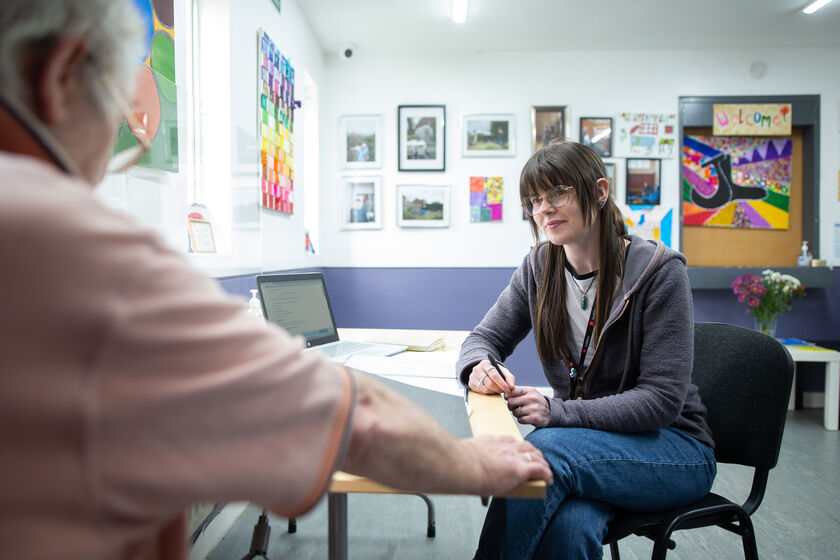All these changes in temporary accommodation in Manchester coincided with changes we were making to the way we were delivering Justlife work in Manchester. Two of our core approaches are to “Inform” and “Innovate”, and by going out and reaching people in their own places and speaking to new landlords, we had the opportunity to live out these approaches.
As well as visits to new properties by Colette and I, the frontline team has been visiting some other properties on a regular basis to offer support (this includes anything from a warm drink, housing and benefits advice, signposting to wellbeing or ex-offender support groups or provision of digital devices to get online).
The last couple of years has been an exciting time for Justlife Manchester, and it's been great to see us go ‘mobile’ and give support to people on their doorstep (or in our nice warm van which has seating, wifi, charging points and studio lighting - whoosh).
Over that time, we connected with so many more people than would have been possible previously and learned about the most effective ways to provide support. But we were also interested in knowing what doesn’t work. The assessment of an intensive approach to support versus an ‘arms -length’ approach was the subject of the Test and Learn evaluation (funded by Fair Housing Futures, Nationwide Foundation). Arms-length work was defined as the provision of information, visits to properties and signposting whereas intense support was relational in nature and required multiple appointments and engagement from the client.
As expected, we saw the most impact where support was intensive although we have highlighted examples of effective arms-length support in the report, such as clients being able to locate local services such as food banks themselves. This funding has helped understand landlord attitudes and knowledge on things such housing rights, complaints and eviction processes. Perhaps even more importantly, it’s given us the impetus to go out there and see people in different parts of Manchester, who otherwise might never have engaged with us or any other service.
Insecure housing, poor conditions, isolation, ill health and poverty are certainly not new to the people we have met, and the pandemic has of course compounded these problems, but by going out and visiting people right where they are, we help someone achieve their first step in their journey of change and can make a real difference in time.
We'll continue to visit Unsupported Temporary Accommodation properties every week, taking our services to people's doorsteps across Greater Manchester.







